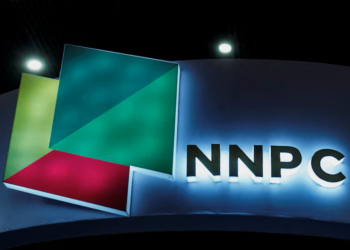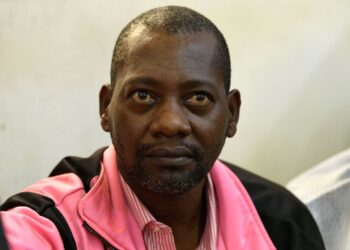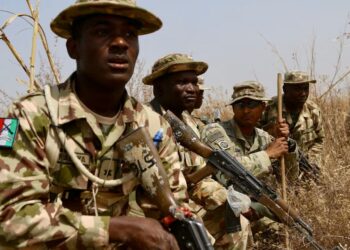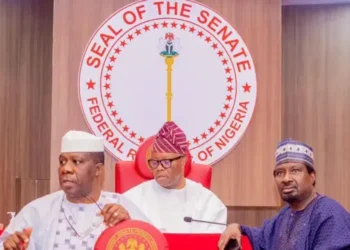Kwame Nkrumah, the first president of Ghana, is a pivotal figure in modern African history. On the one hand, he is viewed as the father of the nation, the pioneer of the African liberation movement, and the foremost advocate of African unity. On the other hand, he is criticized for his authoritarian rule, his excessive ambitions, and his economic decisions that led to the country’s deterioration. Nkrumah’s legacy cannot be understood without delving into the intricate details of his life, from his humble upbringing in West Africa, through his education in the United States and the United Kingdom, to his nearly 15-year presidency.
Francis Nwesia Kofi Nkrumah, later known as Kwame Nkrumah, was born on September 21, 1909, in the town of Nkroful, on the Gold Coast (present-day Ghana). He came from a modest family; his father was a goldsmith and his mother a retailer. He received his primary education at a Catholic school and excelled academically, earning a scholarship to a teacher training college in Accra. After graduating, Nkrumah worked as a teacher, but his ambitions extended beyond his home country.
In 1935, Nkrumah traveled to the United States to pursue higher education, a decision that would profoundly impact the course of his life. He enrolled at Lincoln University in Pennsylvania, where he studied philosophy, sociology, and theology. During this period, Nkrumah became immersed in political thought and encountered the ideas of leaders such as Marcus Garvey and W.E.B. Du Bois. These ideas of Black nationalism and Pan-Africanism inspired him and formed the basis of his future political vision.
In 1945, Nkrumah moved to London, where he enrolled at the London School of Economics. In London, Nkrumah became increasingly involved in African political circles. He participated in organizing the Fifth Pan-African Congress in Manchester, an event considered a turning point in the history of African liberation movements. During this conference, Nkrumah called for immediate independence for Africa, rejecting the idea that liberation should be gradual.
In 1947, Nkrumah returned to the Gold Coast, armed with academic credentials and a clear political vision. He was appointed Secretary-General of the United Gold Coast Convention (UGCC), a political party seeking independence. However, Nkrumah soon fell out with the party’s leaders, who were more moderate and favored a gradual approach to self-rule. Nkrumah believed in “self-rule now” and favored mobilizing the masses rather than relying on negotiations with the elite.
In 1949, Nkrumah broke away from the UGCC and founded his own party, the Convention People’s Party (CPP). This party adopted a more radical approach and relied on the support of urban workers, farmers, and youth. Nkrumah led campaigns of civil disobedience and strikes, which led to his arrest by British authorities. His arrest, however, did not weaken his position; rather, it increased his popularity.
In 1951, general elections were held in the Gold Coast. Although Nkrumah was imprisoned, his party won a landslide victory. The British released him and appointed him as head of government affairs, a first step toward self-rule. On March 6, 1957, the Gold Coast gained independence and became known as Ghana, the first sub-Saharan country to gain independence from Britain.
In 1960, Ghana became a republic, and Nkrumah was elected its first president. His reign was marked by ambitious aspirations and a unique vision for the country and Africa.
Foreign Policy: African Unity. Nkrumah was a staunch advocate of African nationalism and the need to unify the African continent into a single state. He believed that small, isolated African states would remain vulnerable to foreign domination, and that unity was the only path to development and strength. He hosted African unity conferences in Accra and played a key role in the founding of the Organization of African Unity (OAU).
Domestic Policy: Development and Reforms. Domestically, Nkrumah pursued socialist policies aimed at achieving rapid development. He invested heavily in infrastructure, such as the construction of the Akosombo Dam, which provided electricity to the country. He also established a free and universal education and health system, and built new universities and schools. These projects were ambitious, but they were extremely expensive and relied on foreign loans.
Authoritarian Rule: Over time, Nkrumah’s rule became increasingly authoritarian. In 1964, he declared Ghana a one-party state, making the All People’s Congress the sole legal party in the country. He amended the constitution to grant himself sweeping powers and suppressed any political opposition. He used a powerful security apparatus to suppress any protests or dissenting voices.
On February 24, 1966, while Nkrumah was on an official visit to China, a military coup took place in Ghana. A group of army and police officers seized power and declared the end of his rule. The coup was driven by several factors, most notably economic decline, discontent with his authoritarian rule, and mounting foreign debt.
After the coup, Nkrumah lived in exile in Guinea, where President Sékou Touré appointed him “joint president.” Nkrumah devoted his final years in exile to writing, authoring numerous books on African nationalism, neocolonialism, and the African revolution. He died in Bucharest, Romania, on April 27, 1972, while still in exile.
Nkrumah’s legacy is complex and controversial. On the one hand, he is seen as a great historical figure who inspired millions in Africa, led Ghana to independence, and laid the foundation for “African nationalism.” On the other hand, he is widely criticized for his authoritarian rule, ill-advised economic decisions, and failure to realize his vision of African unity.
Nkrumah was a visionary, but he was also a pragmatist, willing to use any means to achieve his goals. His contributions to African liberation are undeniable, but they must be viewed in the context of his authoritarian and individualistic rule. Nkrumah remains a symbol of African nationalism, but he is also an example of the challenges facing African leaders in the post-independence era.



























































